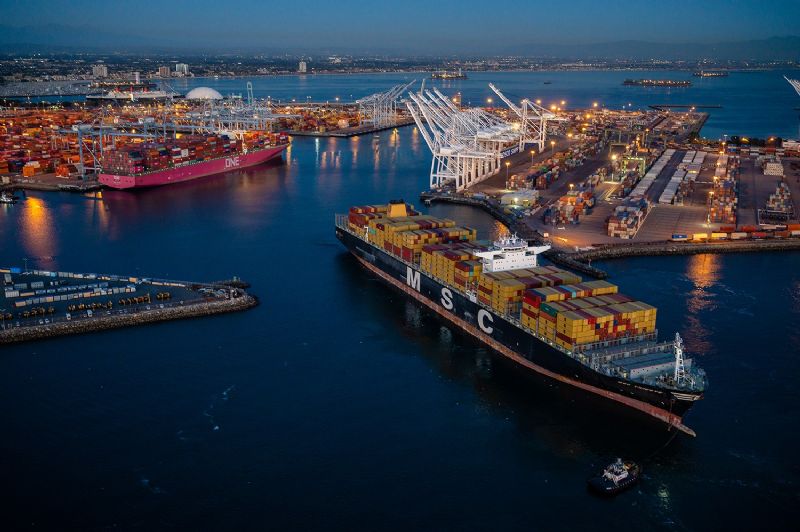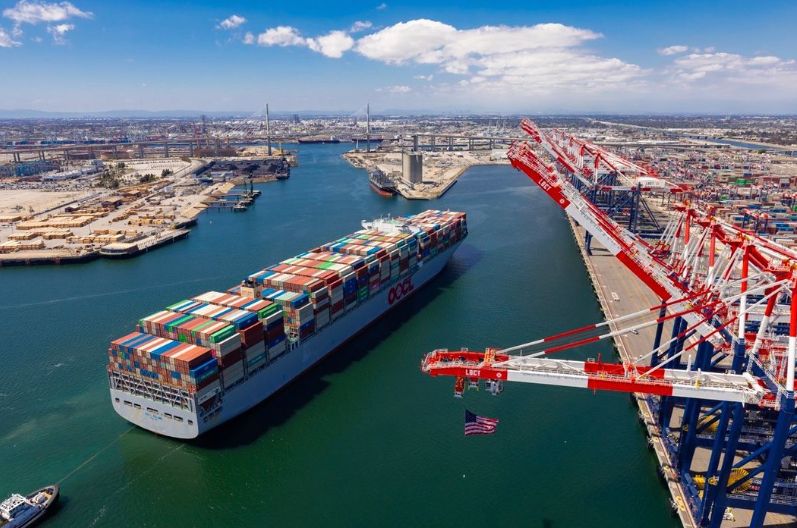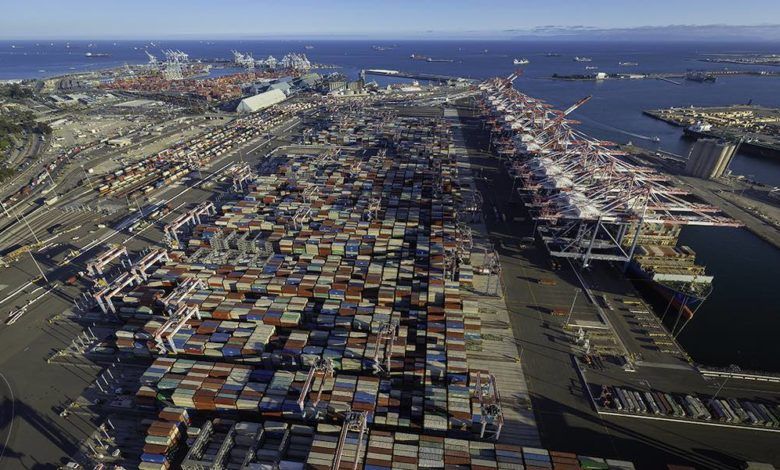
The twin ports of Los Angeles and Long Beach each achieved strong results in November which in part is being attributed to a range of geopolitical issues on top of continued strong consumer spending in the U.S. In what is typically a slower final month of the calendar year and into the New Year, both ports are expecting a continued surge in volumes driving them to record years.
The Port of Long Beach achieved its busiest November in its history with volumes up nearly 21 percent year-over-year to a total of more than 884,000 TEU. Imports at Long Beach grew nearly 22 percent while exports were up 9.5 percent and the movement of empties was up 24.5 percent signaling a likely continuation of the strong import volumes.
“Imports are being driven by strong consumer demand while retailers continue to move cargo here out of concern for labor negotiations at ports on the East and Gulf coasts,” said Port of Long Beach CEO Mario Cordero. Similarly, the Port of Los Angeles’ Executive Director Gene Seroka attributed the strong cargo flow in the port to the unresolved labor issues at the East and Gulf Coast ports as well as front loading of cargo volumes as a hedge against potential tariffs from the new Trump administration.
The Port of Los Angeles handled over 884,000 TEU in November with volume up 16 percent year-over-year and 15 percent ahead of the port’s monthly five-year average. Imports were up 19 percent at Los Angeles.
Both ports highlight the steady, strong pace with Los Angeles highlighting it is up 19 percent year to date to 9.37 million TEU. Long Beach reported six straight months of historic volumes, saying the port is at nearly 8.8 million TEU at the end of 11 months and “on course to reach 9.6 million cargo containers by the end of 2024.”
The trends that have been driving the increased volume are expected to continue and Los Angeles forecast its best ever December saying volume will likely be over900,000 TEU. They expect the shift in cargo and the front loading to continue resulting in the port exceeding 10 million TEU for the year which will be only the second time in its history to break the 10 million TEU annual mark.
Both ports are seeing volumes rivaling the peak during the COVID-19 pandemic with Los Angeles saying it is likely to also provide a “fast start” to 2025. With the Lunar New Year starting on January 29, the expectation is that Chinese and Asian factories will rush to ship goods during January.
Tariffs and trade policy are the big unknowns say Seroka noting it is creating concern. However, he cites experts who said it is likely to be mid-2025 or possibly the third quarter before the first tariff increases might impact the market. Seroka notes that have some experience from 2018 and the previous round of tariffs and will prepare based on their experience.



We use cookies to improve your experience. By continuing to use our site, you accept our Cookies, Privacy Policy,Terms and Conditions. Close X